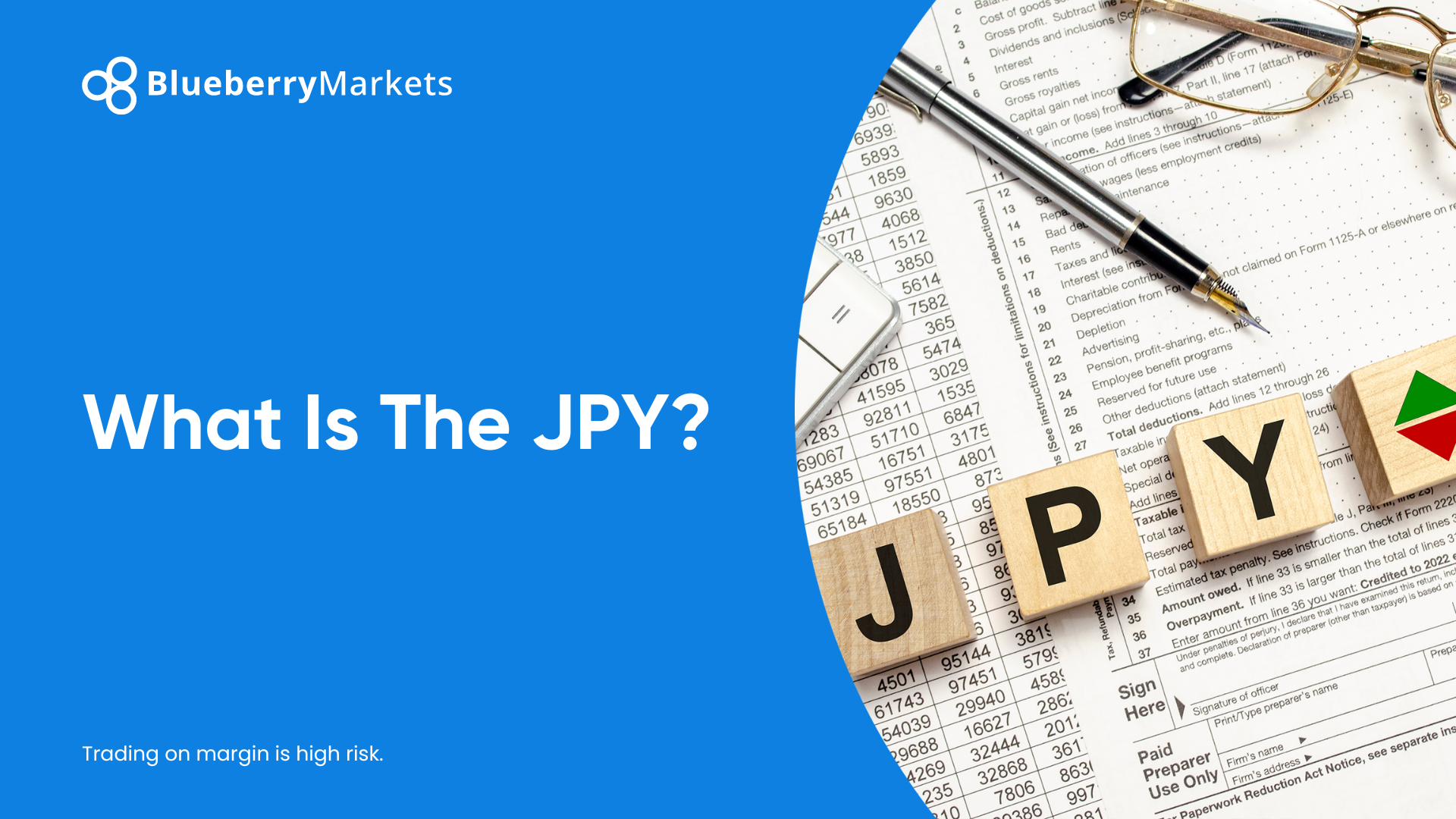Learning about trading the Japanese Yen is essential due to its consistent undervaluation compared to other major currencies over the past decade. Presently, indicators suggest it's 20-30% undervalued relative to its fundamentals. While valuations alone may not trigger significant currency shifts, the Yen's position as one of the cheapest currencies implies that, under the right conditions, undervaluation won't hinder substantial movements, making the Japanese Yen trading potentially beneficial
In this article, we will learn how to trade the Japanese Yen.
What is the JPY?

The JPY is the currency code and symbol for the Japanese Yen, the official currency of Japan. It is often represented by the symbol ¥. The Yen is one of the world's major currencies and is widely used in international trade and finance.
History of JPY

In 1871, Japan introduced the Yen to replace various local currencies, marking the beginning of its modern monetary system. The establishment of the Bank of Japan in 1882 played a pivotal role in overseeing the money supply in terms of Yen, ensuring monetary stability across Japan. Fast forward to World War II, the Yen's value was fixed at 360 JPY per 1 USD as part of post-war economic reforms and the Bretton Woods Agreement, which devalued the currency significantly. It was only in 1973 that Japan made a significant shift to a floating currency system. This historical progression reflects Japan's economic evolution, transforming from a patchwork of diverse currencies to a globally recognized monetary system.
Risks of trading the Yen

Trading the JPY also comes with risks, such as -
- Japan's monetary policy, including interventions by the Bank of Japan, can create unexpected volatility.
- The Yen is sensitive to global economic events, and sudden shifts in risk sentiment can significantly impact its value.
- JPY trading involves market risk, requiring traders to be well-informed, use risk management strategies, and be prepared for potential fluctuations in value.
Factors affecting JPY

Interest rates
Like most currencies, JPY is influenced by interest rates set by the Bank of Japan (BOJ). Higher interest rates tend to attract foreign capital, leading to an appreciation of the Yen, while lower rates can have the opposite effect.
Economic data
Economic indicators such as GDP growth, employment figures, inflation rates, and manufacturing data play a significant role in determining the JPY's value. Strong economic performance often leads to a stronger Yen and vice versa.
Monetary policy
The BOJ's monetary policy decisions, including quantitative easing and interest rate changes, can directly impact the Yen's value. Lower rates or unconventional policies tend to weaken the Yen, while higher rates can strengthen it. These policy actions are closely monitored by traders and can introduce volatility into the forex market.
Global risk sentiment
The Yen is considered a less risky currency compared to other major currencies, so during times of global economic uncertainty or market turmoil, investors tend to purchase more Yen, leading to its appreciation and vice versa.
Trade balance
Japan is a major exporting nation, so its trade balance (exports minus imports) can affect the Yen. A trade surplus can strengthen the Yen, while a deficit can weaken it.
Government intervention
The Japanese government and the BOJ sometimes intervene in currency markets to influence the Yen's value, typically to prevent it from becoming too strong, as a strong Yen can hurt Japanese exports.
Carry trades
The Yen is often used in carry trades, where investors borrow in low-interest-rate currencies like the JPY itself to invest in higher-yielding assets elsewhere. When these trades become popular, more JPY is borrowed, which can initially weaken its value. However, when these trades are unwound, often due to changing market conditions or interest rates, the JPY can strengthen as investors purchase it back to settle their debts.
Stepwise guide to trade the JPY

- Begin with a comprehensive education: Learn about the Japanese economy, its monetary policies, and key economic indicators influencing the JPY, such as GDP, inflation, and interest rates.
- Choose a reputable forex broker: Select a broker specializing in JPY trading pairs. Ensure the broker offers competitive spreads, an accessible trading platform, and dependable customer support.
- Develop a well-defined trading plan: Outline individual trading objectives, risk tolerance levels, and preferred trading strategies in the trading plan. Decide whether the focus will be on short-term, medium-term, or long-term trading.
- Employ a dual analytical approach: Combining technical analysis using charts, patterns, and indicators with fundamental analysis encompassing economic news and central bank policies to evaluate both current and projected movements of the JPY.
- Select specific JPY currency pairs: Trade JPY pairs that align with the chosen trading strategy. Common pairings include USD/JPY, EUR/JPY, and GBP/JPY.
- Implement effective risk management strategies: Determine the appropriate position size and setting stop-loss orders to limit potential losses, ensuring that no more capital is risked than one can afford to lose.
- Execute trades: In each trade, include market orders (entering or exiting at current prices) and limit orders (entering or exiting at predetermined price levels).
- Monitor JPY trade: Closely observe price fluctuations and stay attuned to relevant news events that affect the market.
- Implement exit strategies to close the trade
Trading the JPY with several other currencies

Trading the Japanese Yen offers opportunities in a major global currency market, but it comes with risks. The JPY's liquidity and Japan's role in international trade are advantages. However, it's vital to consider risks like sensitivity to global events and the impact of the Bank of Japan's policies. Traders should use risk management and stay informed to trade the JPY wisely.
Disclaimer: All material published on our website is intended for informational purposes only and should not be considered personal advice or recommendation. As margin FX/CFDs are highly leveraged products, your gains and losses are magnified, and you could lose substantially more than your initial deposit. Investing in margin FX/CFDs does not give you any entitlements or rights to the underlying assets (e.g. the right to receive dividend payments). CFDs carry a high risk of investment loss.




